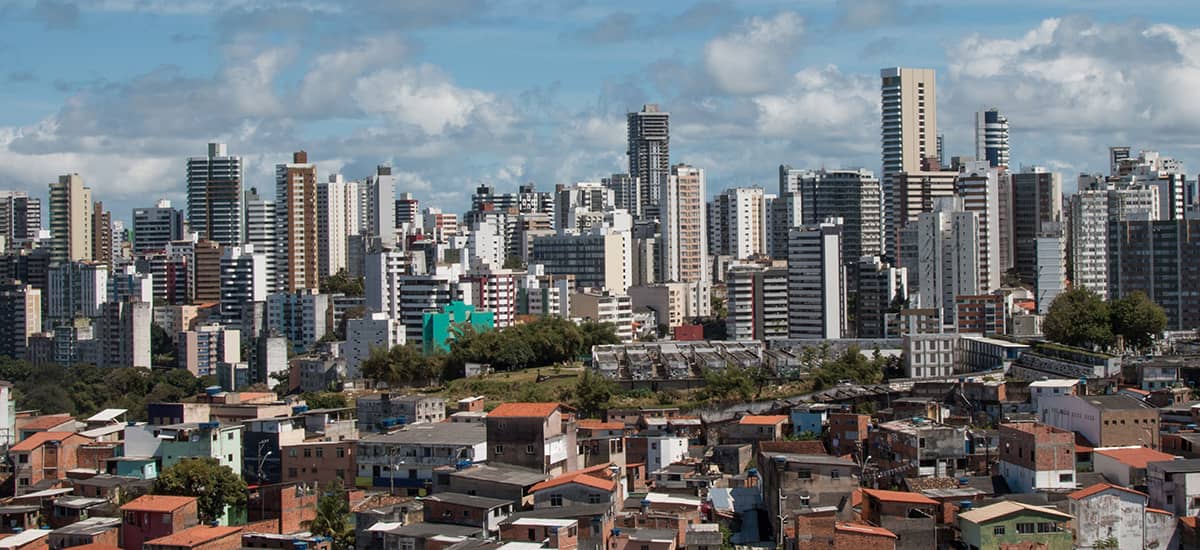
Despite decades of democratic governance and policy reforms, economic inequality in Latin America remains a stubborn reality. Concentrated income and wealth among the richest 10% of the population has left the poorest 10% with less than 2% of total income. The disparities have endured for the last 30 years, even in relatively stable democracies like Chile, Colombia, and Mexico.
This stands in stark contrast with most developed countries. For instance, Latin America’s overall Gini index of income inequality was 53.3 in 2000 and dropped to 45.7 by 2018, still far above the OECD average of 33.2. The COVID-19 pandemic exposed enduring inequalities and further affected the most vulnerable, causing some countries in the region to register a rise in their Gini index after 2020.
A recent IDB paper asks what role governance factors play in Latin America’s persistent inequality. It finds that stronger democracies have implemented more redistributive policies, including social protection spending, while also advancing in terms of voter participation. Nonetheless, high levels of inequality continue to mark the region’s societies due to demand- and supply-side governance constraints, including low political and interpersonal trust, distorted perceptions of income distribution, limited demand for pro-poor policies, and institutional fragility.
More targeted and effective policy reforms are needed to make decisive progress on inequality. For lasting impact, policy action requires improved governance, through protecting democratic institutions, gaining citizen trust, and limiting vote buying.
Weak Governance Hinders Effective Policymaking
In theory, well-functioning democracies should address economic inequality through policies oriented around redistributive taxation and spending and supported by majority demand. However, in Latin America, these mechanisms have lacked force. While countries with stronger democratic institutions, such as Costa Rica and Uruguay, have adopted more redistributive policies, post-tax inequality remains high across the region.
Increased electoral participation in these countries, rising from 63.2% in 2000 to 67.5% in 2018, has been a positive development. Economically motivated protests meanwhile have also become more frequent particularly in weaker democracies, increasing from about one per year to more than six on average in the past decade, indicating a disconnect between policy responses and public demands.
While citizen engagement is necessary for a well-functioning policy process, voter biases may sometimes stifle effective redistributive policies in the region. For instance, a survey in Argentina revealed that about a third of individuals overestimated their position in the income distribution, which reduced their support for redistributive measures. Low political and interpersonal trust also complicates the policymaking process. For example, an IDB-Cornell survey found that lower-income respondents were less likely to have accurate knowledge about COVID-19 symptoms and prevention, influencing their policy preferences and trust in government actions.
In Latin America, both political and interpersonal trust are notably low. Mistrust influences voter behavior and policy choices, because it creates a preference for targeted transfers over broader public goods. Survey data indicate that voters with low trust in political campaign promises are about seven percentage points less supportive of public investments in education and security compared to those with higher trust levels. Conversely, when elections are viewed as legitimate and there is broad voter participation, redistributive policies are more likely to succeed. For example, in Brazil, a change in voting technology that made it easier for low-literacy citizens to vote led to a significant shift in government spending towards pro-poor policies like public health.
Sustaining Progress in Fighting Inequality
Recent data indicate that while there has been noticeable progress in reducing inequality, significant challenges remain. Government spending on social protection has increased, with social protection as a percentage of GDP rising from 3.24% in 2000 to 4.09% in 2018, including expanded coverage of conditional cash transfer programs and noncontributory pensions. Stronger democracies in the region, averaging a democracy index score of 8 to 10, have been more successful in reducing inequality through fiscal policies, with the Gini index dropping on average from 50.6 to 43.7 after taxes. However, these measures have not been sufficient to close the inequality gap. The data also show a rise in voter turnout and street protests, highlighting the complex relationship between democratic engagement and policy effectiveness.
Resolving persistent inequality in Latin America requires bold policies, which in turn require good governance. Strengthening democratic institutions and building citizen trust are crucial steps. Policymakers need to focus on both the demand and supply sides of the equation, ensuring that voter preferences are accurately represented and that institutional constraints are minimized. This includes improving the visibility and effectiveness of redistributive policies and enhancing state capacity for more efficient implementation.
Addressing the underlying social and economic factors that contribute to inequality is essential for fostering more equitable and stable societies. That will encompass more research and targeted policy reforms to ensure that democracy fulfills its potential in reducing the problem. Tackling the issue of vote buying, which is particularly prevalent in countries with weakly institutionalized political parties, is one example of how to help channel redistributive policies through the legitimate political process.


Leave a Reply